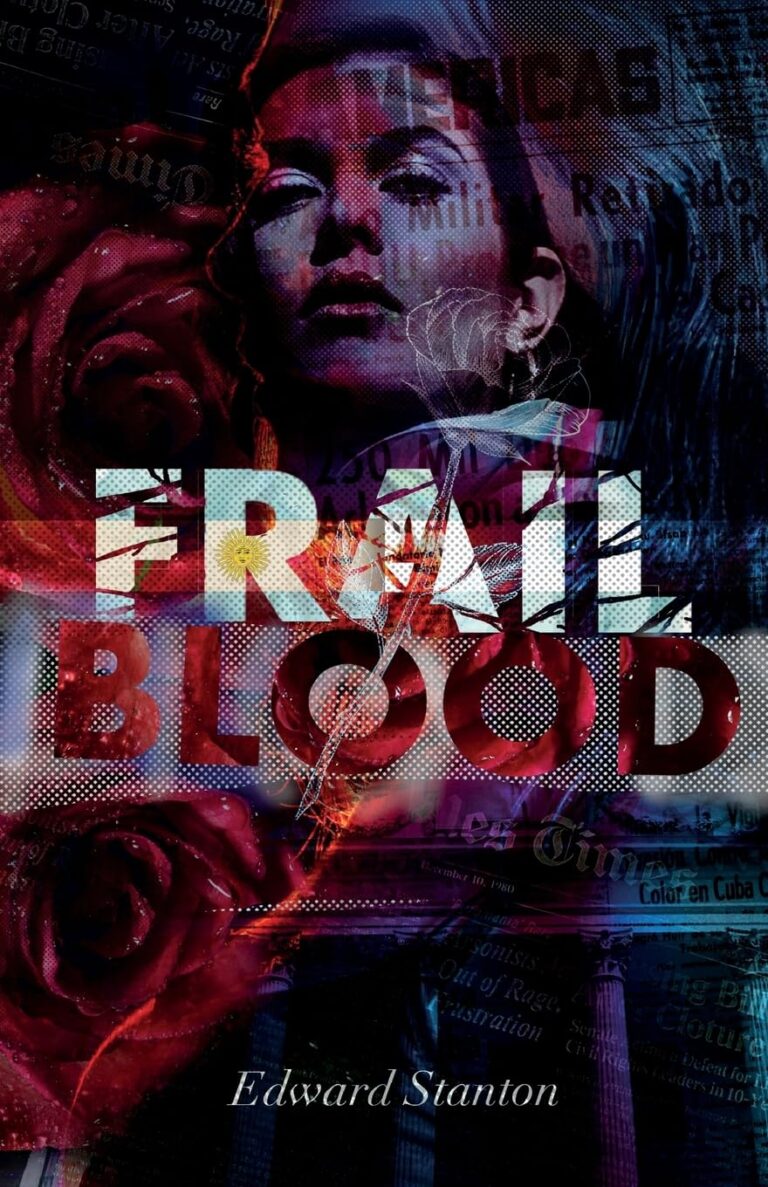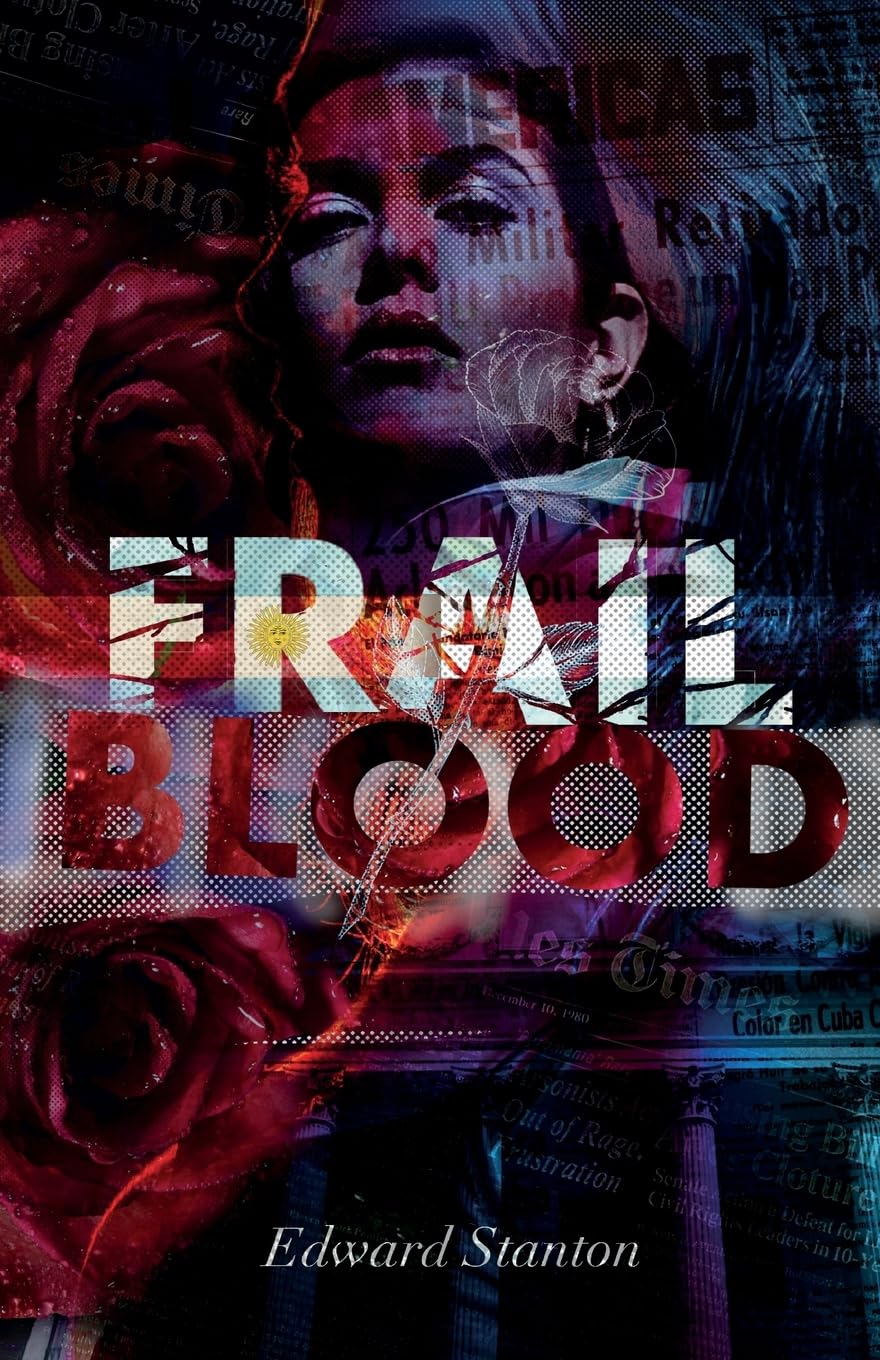Recently divorced, LA journalist Robert Wells finds himself in Buenos Aires. Though the military dictatorship has fallen and lawsuits are slowly bringing war criminals to justice, many of the perpetrators remain powerful fixtures in high society. When Robert becomes entangled with Gabriela, the daughter of one such man, love and death haunt every step through a city that still remembers its days of violent repression.
Edward Stanton’s FRAIL BLOOD draws on well-known traditions of 20th-century Latin American novels. Those traditions and tropes can be frustrating or alienating to some, but they’re charming and familiar to others. Readers of Allende, Márquez, and others will feel right at home. The text nails these traditions with its sometimes-disorienting, dreamlike logic (endless urban journeys from plaza to bar to restaurant; dialogue that shies away from truth before circling back around to it); a dose of magical realism (the protagonists’ lovemaking causes electric surges and outages in their apartment building); and an oppressive awareness of centuries-old traditions of classism (often expressed in fascinating, revolting displays of consumption: “tender steak spiced with the house chimichurri, followed by beef ribs, sweetbreads, offal, chorizos, blood sausage—rounded off by fresh strawberries, all washed down with a bottle-and-a-half of Malbec”). Latin American fiction often springs from a tight spiritual relationship between the people, the nation, and the land, so FRAIL BLOOD is never without rich sensory detail of weather (“The honeyed light vanished, the sky turned milky as a pearl”) and climate (“The earth wheeled around the sun, the weather turned hot, jacarandas opened their violet panicles”). For readers that want more in this vein, this novel delivers plenty.
But the text also rehashes some of the lingering troubles expressed in the fiction of traditionalist, Catholic countries struggling to escape autocratic regimes. The treatment of gender is particularly noticeable. Robert’s lover Gabriela is the daughter of a powerful oligarch, Sr. César Roca—a threatening paterfamilias who himself acknowledges “our worship of strong, violent men who tamed our great herds of cattle and horses.” The text seems aware of Roca’s misogyny (it’s frequently noted that his library is devoid of books by women), and there’s no question that Robert wants to free Gabriela from his abusive paternalism. But, structurally, FRAIL BLOOD becomes a competition between Robert and Roca, reducing Gabriela to objecthood. Robert is a classic 20th-century sexual tourist; he barges into Gabriela’s life, ignores all the warning signs that his behavior will lead to catastrophe, and ends up harming her as a result. Important female-led groups like the Madres de Plaza de Mayo are name-checked, but they’re merely decoration in a story primarily about a man and his daughter’s lover. Again, this isn’t unusual for 20th-century Latin American fiction, and it accurately reflects the sickness of machismo which still influences those cultures, but it remains a disappointment for a 21st-century reader.
Nonetheless, FRAIL BLOOD is well-imagined, vividly told, and endlessly enthusiastic about the literary traditions upon which it draws.
A lush romance in the classic style of 20th-century Latin America, Edward Stanton’s FRAIL BLOOD evokes writers like Isabel Allende while failing to avoid some of their pitfalls.
~Dan Accardi for IndieReader


